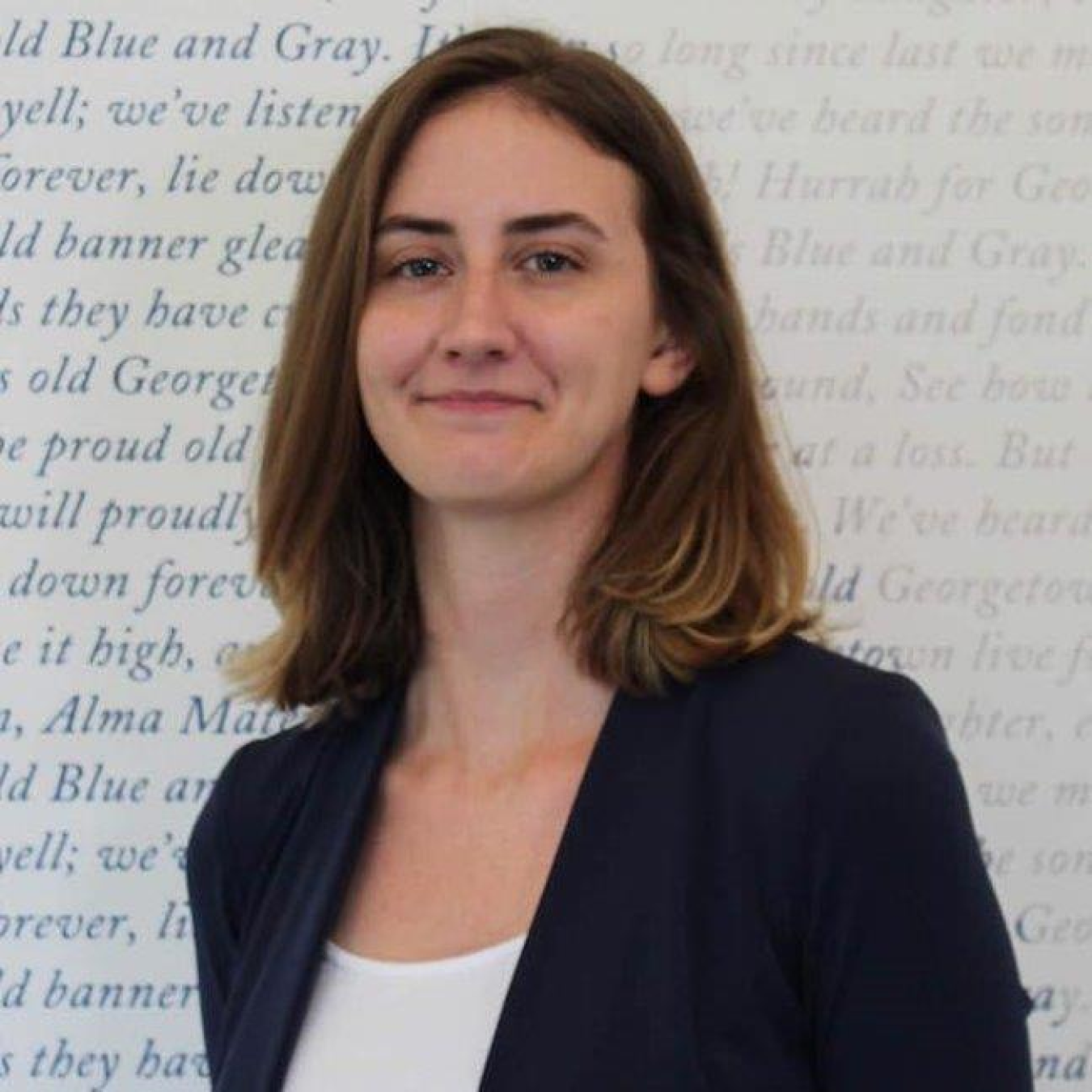Far from being put off by NNSA's bureaucracy, she has embraced it. It's crucial to understanding how U.S. policy is implemented at different levels across different organizations, she says.
National Nuclear Security Administration
April 4, 2023
What is your role here at NNSA? How does it align to our mission?
I support the Office of Defense Nuclear Nonproliferation as a Correspondence Officer. I track all incoming and outgoing action items in NNSA’s correspondence system and coordinate with our Regional Coordinators and program offices to make sure everything is up to NNSA standards and completed on time. I also support a number of other administrative duties, including coordinating travel and training new staff.
What led you to a career in nuclear security?
My academic background studying East Asian politics and security led me to work on projects focused on the Korean Peninsula, on topics such as human rights in North Korea, North Korean overseas labor, the U.S. alliance framework with South Korea, U.S. Congressional legislation relating to the Koreas, and political violence and protests in South Korea. I realized if I wanted to properly understand the security environment in Northeast Asia, I needed to build my knowledge of nuclear security. When an opportunity to work at NNSA came along, I jumped on it!
What is the best part about your job?
The best part of my job is the people I work with – I work in an office full of passionate, dedicated, and kind people who put effort into not only supporting their coworkers, but encouraging an office culture based on cooperation and respect.
Don’t undersell yourself. ... If you put in the work and are passionate about what you do, you are already ahead of the game. The rest is networking and marketing yourself.
What did you study in school and how did it impact you personally and professionally?
My graduate school studies were focused on East Asian politics and security – particularly the Korean Peninsula – while my undergraduate degree was in Political Science and International Relations. My studies gave me a greater appreciation for the diversity of thought on how global security should function, and inspired me to pursue a career focused on international cooperation. It also led me to a lifelong appreciation of Korean history and food!
How has your personal background/experience shaped your work?
Having worked for a number of different organizations over the years, I learned to lean into my curiosity about why it is we do things the way we do. Learning how organizational processes work is one of the best ways to avoid frustration, make impactful recommendations, and make sure your work is useful and actionable.
Tell us a little about yourself – a fun fact, a personal hobby, and/or accolades received.
I love science fiction and fantasy. When I am not at work, you will find me trying to indoctrinate my friends or my husband into loving “The Expanse” or “Star Trek,” or trying to convince myself that I have the time to write a book on the intragalactic politics of “Star Wars.
Is there something you’ve learned here that you didn’t know before?
I had not worked in government before coming to NNSA. Having come from an academic and research background, it has been invaluable to see government bureaucracy in action and gain an understanding of how U.S. policy is implemented at different levels across different organizations.
Why do think diversity and inclusion is important to your profession?
Besides the clear and obvious reason that everyone deserves the opportunity to study and work in the field they are passionate about, we are all better at our jobs when we work in a dynamic environment that challenges us to grow. Having different backgrounds and perspectives represented in the office, along with a cooperative work culture, results in better products and a higher level of engagement with the subject material.
What advice do you have for young women and girls interested in a career like yours?
Don’t undersell yourself. It can be difficult to feel you belong in a career that has not traditionally been welcoming to women, so it is important to remind yourself that if you put in the work and are passionate about what you do, you are already ahead of the game. The rest is networking and marketing yourself.
Who is a woman (or who are some women) that inspire/s you and why?
More than any particular person, I am inspired by working side by side with women in my everyday life. Working in the Office of Defense Nuclear Nonproliferation is the first time in my life that I’ve worked for all-female leadership and with predominantly female staff. Seeing the capabilities, ambitions, and career trajectories of my colleagues has challenged me to reassess what I considered possible for myself and has encouraged me to step out of my comfort zone and try new things.

